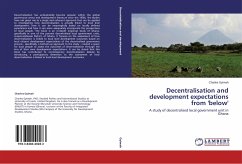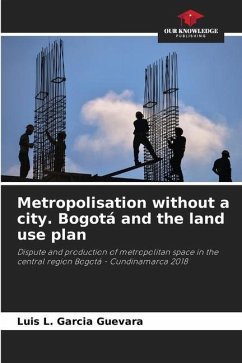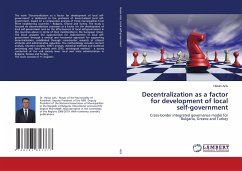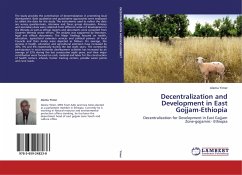
Decentralisation and development expectations from 'below'
A study of decentralised local government unit in Ghana
Versandkostenfrei!
Versandfertig in 6-10 Tagen
65,99 €
inkl. MwSt.

PAYBACK Punkte
33 °P sammeln!
Decentralisation has undoubtedly become popular within the global governance arena and development literature since the 1950s. Yet studies have not given rise to a single and coherent approach that can be applied to investigating how decentralisation is actually linked to local level development, how it can be meaningfully based on locally defined parameters and how it can more adequately incorporate the perspectives of local people. The book is an in-depth empirical study of Ghana, specifically in one of the poorest decentralised local government units, Jirapa-Lambussie District, of Ghana. It...
Decentralisation has undoubtedly become popular within the global governance arena and development literature since the 1950s. Yet studies have not given rise to a single and coherent approach that can be applied to investigating how decentralisation is actually linked to local level development, how it can be meaningfully based on locally defined parameters and how it can more adequately incorporate the perspectives of local people. The book is an in-depth empirical study of Ghana, specifically in one of the poorest decentralised local government units, Jirapa-Lambussie District, of Ghana. It focuses on the assessment of how decentralisation is linked to local level development outcomes based on local citizens' development expectations of the decentralised governance process - specifically, a bottom-up approach to the study - created a space for local people to assess the outcomes of decentralisation through the lens of their own development expectations. It can be stated that this book has contributed to contemporary decentralisation debate by introducing a participatory dimension to the assessment of how decentralisation is linked to local level development outcomes.












